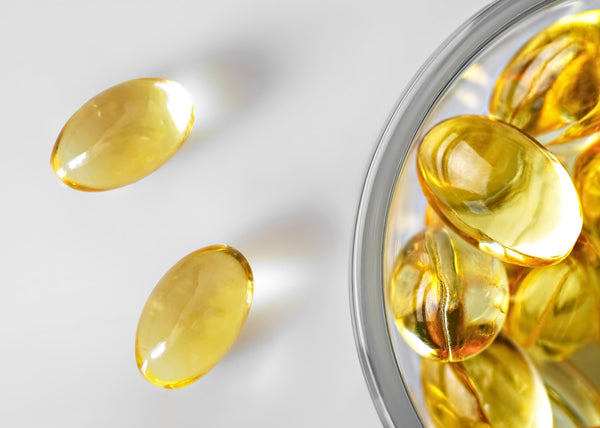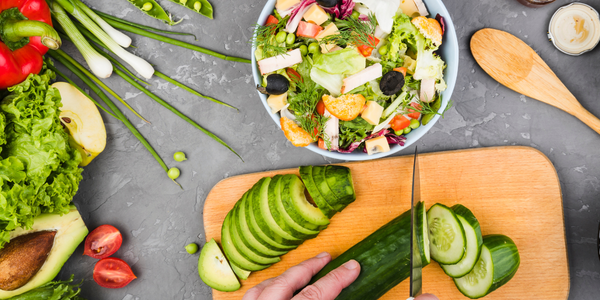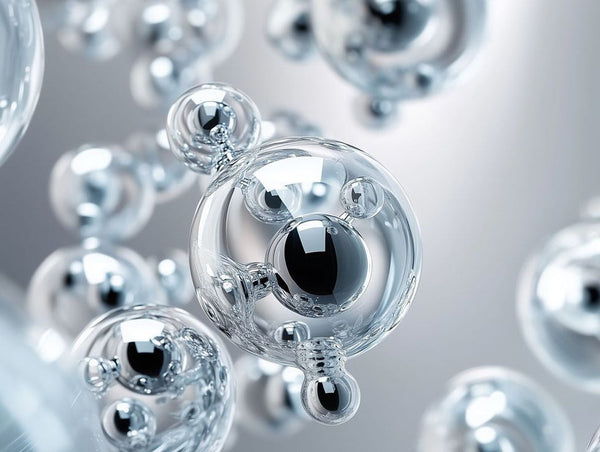Understanding PMS and Its Impact on Women's Health
Premenstrual syndrome (PMS) is a common condition that affects many women during their menstrual cycle. It is characterized by a combination of emotional, physical, and behavioral symptoms that can have a significant impact on a woman's overall well-being.
The Science Behind PMS
During the menstrual cycle, the levels of estrogen and progesterone fluctuate, which can lead to various changes in the body. These hormonal changes can affect neurotransmitters in the brain, such as serotonin, which plays a vital role in regulating mood. When serotonin levels drop, it can result in mood swings, irritability, and feelings of sadness or anxiety.
The Emotional and Physical Symptoms of PMS
PMS symptoms vary from woman to woman, but some of the most common emotional symptoms include mood swings, irritability, anxiety, and depression. Physical symptoms can include bloating, breast tenderness, fatigue, headaches, and cravings for certain types of food. These symptoms typically occur in the days leading up to menstruation and subside once the menstrual cycle begins.
How to Manage PMS Symptoms
To manage PMS symptoms, regular exercise can reduce mood swings and boost well-being, while a balanced diet rich in fruits, vegetables, and whole grains helps regulate hormones and reduce bloating and fatigue. Stress-reducing techniques like yoga, meditation, and deep breathing can alleviate anxiety and irritability. For severe symptoms, consulting a healthcare provider for treatments like hormonal birth control or antidepressants may be beneficial. Keeping a symptom journal can also help identify patterns and effective coping strategies.
The Importance of Self-Care During PMS
Self-care is essential for looking after your own needs, especially in the days before your period when PMS symptoms can be at their worst. While there's no cure-all for these hormone-induced changes, certain self-care habits can help relieve PMS symptoms and make you feel better until your period starts and your hormones stabilize. Here are six self-care tips to help you feel happier and healthier during this time.
The Role of Self-Care in Managing PMS Symptoms
Self-care practices can alleviate PMS symptoms and enhance overall quality of life. Activities that promote relaxation, reduce stress, and improve physical well-being can positively impact both emotional and physical symptoms. Here are some of the self-care ways to manage PMS:
Balanced Diet
Proper nutrition is key to managing PMS symptoms, as a balanced diet with essential nutrients can regulate hormones, improve mood, and reduce discomfort. Here are some key considerations when it comes to diet during PMS:
Increase intake of complex carbohydrates: Foods such as whole grains, legumes, and fruits can help stabilize blood sugar levels and promote a sense of calmness. These foods are also rich in fiber, which aids in digestion and reduces bloating.
Include healthy fats: Omega-3 fatty acids found in foods like salmon, walnuts, and flax seeds have been shown to reduce inflammation and alleviate mood swings associated with PMS.
Minimize caffeine and alcohol consumption: Both caffeine and alcohol can disrupt hormone balance and exacerbate PMS symptoms. Limiting or avoiding these substances can help alleviate discomfort.
Foods to Include and Avoid
Some foods for PMS have been shown to alleviate PMS symptoms, while others may exacerbate them. It's important to make mindful choices when selecting meals and snacks during this time of the month.
Foods to include:
Leafy green vegetables like spinach and kale, which are packed with essential vitamins and minerals.
Lean proteins like chicken, fish, and tofu, which provide the body with the necessary nutrients.
Healthy snacks like almonds or berries, which offer a combination of vitamins and antioxidants.
Foods to avoid:
Highly processed foods, which often contain excess salt, sugar, and artificial additives that can exacerbate bloating and inflammation.
Fried and greasy foods, which can contribute to feelings of sluggishness and discomfort.
Intimacy
Intimacy, both emotional and physical, can play an important role in managing PMS symptoms and promoting overall well-being. Here's how it can help:
Emotional Intimacy and PMS
During PMS, emotional support from loved ones can make a significant difference in how a woman copes with her symptoms. By engaging in open and compassionate communication, partners and friends can provide comfort, understanding, and reassurance, helping to ease feelings of anxiety or depression.
Physical Intimacy and PMS
Physical touch, such as hugs, cuddling, holding hands, or having sex releases oxytocin, often referred to as the "love hormone." Oxytocin promotes feelings of relaxation and bonding, which can help reduce stress and alleviate physical symptoms associated with PMS.
Work Outs
Engaging in regular exercise during PMS can have numerous benefits for both the body and mind. Here's why working out is an effective self-care strategy:
The Benefits of Exercise During PMS
Exercise releases endorphins, which are natural mood-boosting chemicals. These endorphins can help reduce feelings of sadness or anxiety and improve overall well-being. Additionally, physical activity can improve circulation and reduce muscle tension, providing relief from common PMS symptoms such as cramps and bloating.
Recommended Workouts for PMS Relief
Various workouts can be especially beneficial during PMS. Low-impact activities like yoga or Pilates can help stretch tight muscles and promote relaxation. Cardiovascular exercises such as walking, swimming, or cycling are some of the best exercises for PMS which help increase heart rate and release endorphins, helping to elevate mood and reduce discomfort.
Long, Hot Baths
Indulging in a long, hot bath is a luxurious self-care practice that can provide relief from PMS symptoms. Here's why it's worth adding to your self-care routine:
The Benefits of Long, Hot Baths for PMS Relief
Immersing yourself in warm water can help relax tense muscles, reduce cramps, and alleviate discomfort. It also provides an opportunity to unwind and de-stress, which can have a positive impact on mood and overall well-being. Adding Epsom salts or essential oils like lavender can enhance the therapeutic effects of a hot bath.
Adequate Sleep
Sleep is a vital component of overall well-being, especially during PMS. Here's why getting enough rest is crucial:
The Importance of Adequate Sleep during PMS
During the menstrual cycle, hormonal fluctuations can disrupt sleep patterns, making it challenging to get enough rest. However, prioritizing sleep is essential for managing PMS symptoms. Sleep deprivation can exacerbate mood swings, increase fatigue, and impair cognitive function. Aim for a consistent sleep schedule and create a relaxing bedtime routine to promote better sleep during this time of the month.
Meditation
Meditation is a powerful practice that can help women manage PMS symptoms and cultivate a sense of inner calm. Here's how it can benefit you:
The Benefits of Meditation for PMS Relief
Meditation encourages mindfulness and reduces stress levels, which can help alleviate emotional symptoms associated with PMS. By taking a few moments each day to focus on the breath and cultivate a state of relaxation, you can enhance emotional well-being and reduce the impact of PMS on your daily life.
Intimate Hygiene During PMS
Proper intimate hygiene is crucial during PMS to minimize discomfort and prevent infection. Here's what you need to know:
The Importance of Intimate Hygiene
During menstruation, the vaginal area is more susceptible to irritation and infection. Maintaining proper intimate hygiene practices, such as using gentle cleansers, changing sanitary products regularly, and using airy, loose clothing at home can help prevent discomfort and keep the vaginal area clean and healthy.
Supplements for PMS Relief
Supplements can be an effective addition to your self-care routine when managing PMS symptoms. Here are some options to consider:
Supplements for PMS Relief
Certain supplements have been shown to alleviate PMS symptoms. These include:
- Calcium: Helps reduce mood swings, cramps, and bloating.
- Vitamin B6: Assists in the production of neurotransmitters that regulate mood.
- Magnesium: Can reduce symptoms like breast tenderness, bloating, and mood disturbances.
Other oral supplements can help ease PMS and provide relief. Before starting any new supplement regimen, it's important to consult with a healthcare professional to ensure they are safe and appropriate for your individual needs.
Conclusion
PMS is common for many women, but self-care can significantly reduce its impact. Understanding PMS and prioritizing practices like a balanced diet, regular exercise, adequate sleep, meditation, and intimate hygiene can help manage symptoms. Each woman's experience is unique, so it's important to find what works best for you. Prioritize self-care, listen to your body, and seek support if needed to improve well-being during your menstrual cycle.

























